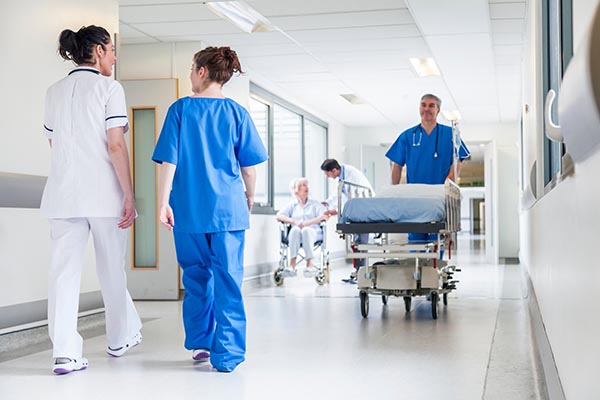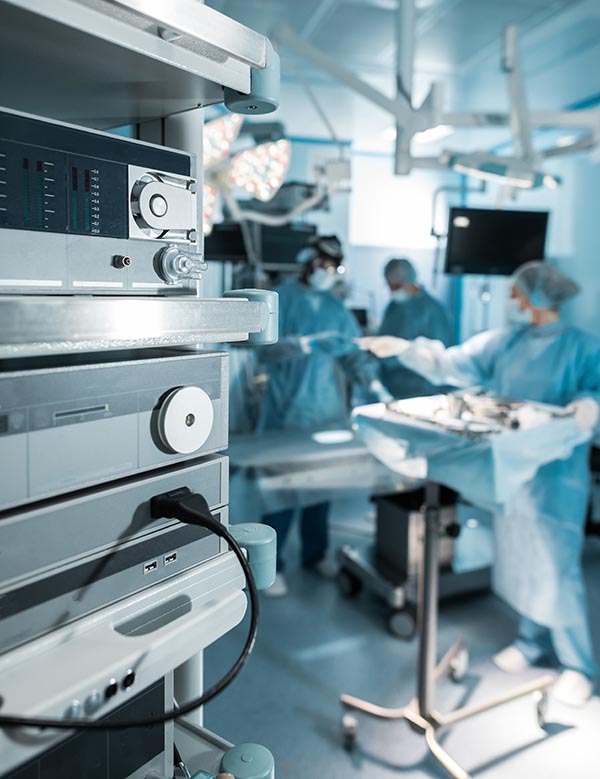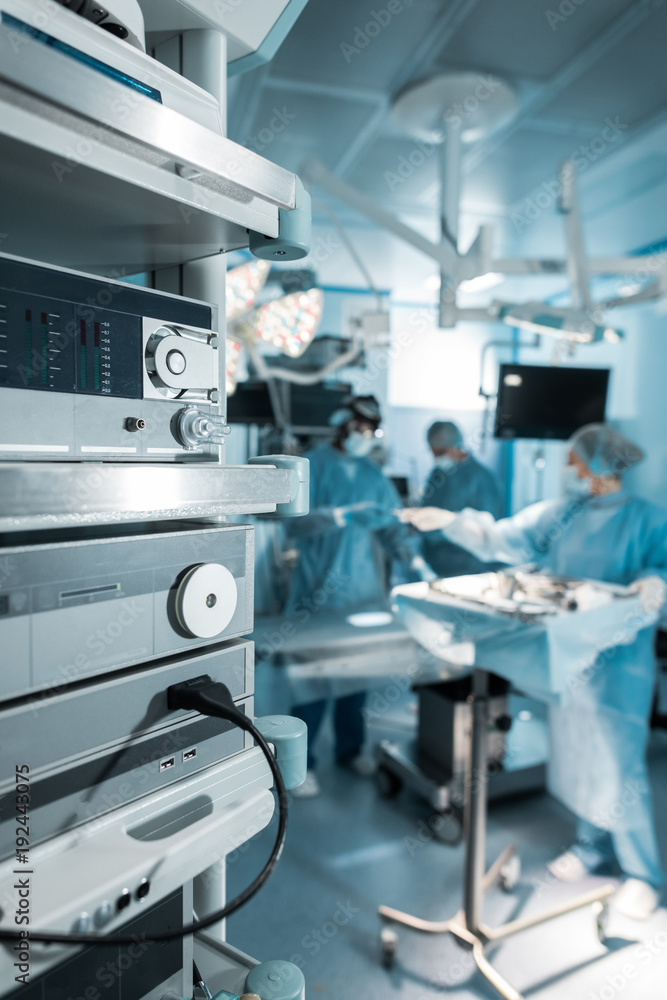Hospital Infection Lawyer in Chicago

Hospital Infections
When you enter a hospital, you expect it to be a clean and sanitized place. However, this unfortunately isn’t always the case. Hospital-acquired infections are more common than you may think. It’s estimated by the U.S. Department of Health that 1 in 20 patients admitted to hospitals in the United States sustain a serious infection.
Hospitals should prioritize the health of their patients and maintain a sterilized environment. Any medical facility that doesn’t take extra precautions to avoid infections are being negligent. If you or someone you know has suffered from a preventable hospital infection, it’s imperative you seek a personal injury attorney immediately.
Hospital Infections Lawyer
The sad truth is that most hospital infections are avoidable. There’s no reason you should leave a hospital sicker than when you entered. If you have developed an infection because of a hospital’s medical malpractice, it’s important you secure legal representation.
Susan E. Loggans & Associates is a group of reputable attorneys who have years of experience with personal injury. Our lawyers can represent you and help you recover from your injuries. Call us now at (312) 201-8600 to schedule your free consultation. We accept clients throughout the greater Cook County area including Des Plaines, Chicago, Arlington Heights, and Schaumburg.
Overview of Hospital Infection Lawyer in Chicago
Hospital Infections Lawyer
Leading Causes of Hospital Infections
Common Types of Preventable Hospital Infections
Filing a Claim for a Preventable Hospital Infection
Hospital Infections Resources
Leading Causes of Hospital Infections
Most infections that develop in a hospital setting are avoidable. Medical personnel that act negligently and don’t take the extra steps to ensure their patients won’t encounter any harmful bacteria are endangering others. Listed below are some of the leading causes for infections in a hospital or medical facility.

1. Failure to Disinfect Equipment
Hospitals and physician’s offices are required to sterilize their equipment. Disinfecting medical tools helps prevent the spread of bacteria and viruses. If procedures aren’t followed, an infection could occur.
2. Not Following Disposal Precautions
Medical facilities handle biohazards every day such as blood samples from testing or tissue from surgery. This biohazardous waste is potentially infectious and must be disposed of properly to avoid distributing harmful bacteria. Hospitals that don’t follow regulations for biohazard disposal are putting others at risk of infection.
3. Overusing Antibiotics
Antibiotics that are overused or unnecessary could lead to “super bacteria,” or bacteria that has developed a resistance to common drugs. This means your infection could become much worse and be difficult to treat. Hospitals should check your medical history before prescribing antibiotics to you.
4. Lack of Hygiene
Hospital personnel must be hygienic at all times to prevent infection. Nurses, surgeons, doctors or any other type of medical professional must continuously wash their hands throughout the day. They must also ensure they clean off any tissue, blood or residue from any previous patients before working with a new one.
5. Failure to Clean Surgical Tools
Surgeons and their nurses must properly clean all their surgical equipment. Uncleaned surgeon tools could turn into repositories for infectious bacteria. Hospitals are also required to properly dispose of any paper products used to soak up blood such as cotton balls.
Common Types of Preventable Hospital Infections
The severity of hospital-acquired infections depends on how it was caused, and the type of bacteria involved. The Centers for Disease Control and Prevention have identified four categories for preventable hospital infections. These include:
Catheter Infections
A catheter is a tube inserted into the body to drain urine. It’s usually used for patients who have difficulty walking or moving. The longer the catheter the greater chances of you developing a urinary tract infection.
Surgical Site Infections
Infections that occur around a surgery incision or incisions are very common. In some cases, the infection is internal and can be much more deadly. Nurses who don’t frequently clean a surgical site are being negligent.
Central Line Infections
Central lines are a type of catheter inserted into a large vein in the groin, chest or neck. Physicians may also use central lines to acquire blood samples for people who are in intensive care or are incredibly sick. Infections associated with central lines are common and are incredibly dangerous.

Ventilator-Associated Pneumonia
Infections that develop in the lungs because of a ventilator are incredibly dangerous. This can even lead to pneumonia which is a serious medical condition. Harmful germs can enter your system through your nose or mouth via a ventilator tube or a tracheostomy in the neck.
Filing a Claim for a Preventable Hospital Infection
If your infection occurs because of your hospital’s negligence, then you may be entitled to compensation. The term ‘negligence’ is when a person fails to behave with the level of care that someone of ordinary prudence would have done in the same situation. Usually negligence consists of actions, but it can also include omissions of actions when there is a duty to act.
For example, a prudent nurse would frequently wash their hands throughout the workday to prevent infection. If a nurse intentionally chooses to not wash their hands or carelessly forgets to, they’re being negligent because a reasonable person would never do that.
You can file your claim against the hospital that injured you on the grounds of negligence. Since you’re filing the claim, you will be referred to as the plaintiff and the hospital or medical personnel who receives the claim is known as the defendant.
As the plaintiff, it’s your burden to prove the hospital’s negligence caused your infection. You can do this by presenting eye-witness statements, medical records and any other relevant information. These can be used during negotiation or in court as evidence for your case.
If you’re able to sway the court, then you will be granted a monetary settlement. Your settlement should cover all the damages related to your infection. Damages are simply any losses you’ve experienced because of the infection such as lost earnings or medical bills.

Listed below are some common damages your settlement may cover.
- Medical Costs
- Motor Vehicle Repairs
- Lost earnings
- Loss of future earnings
- Loss of quality of life
- Pain and suffering
- Loss of consortium
Hospital Infections Resources
Healthcare-Associated Infections
Visit the official website for the Centers of Disease Control and Prevention to learn more about hospital infections. Access the site to learn more about the four types of health-associated infections, how they happen and treatment for them.
Illinois Hospital Rules and Regulations
Visit the official website for the Illinois Department of Public Health to learn more about their laws for hospitals and medical facilities. Access the site to learn how a hospital is licensed, what they’re required to have and more.

Susan Loggans Law
You shouldn’t have to suffer because of another person’s negligence. Contact Susan E. Loggans & Associates to learn your legal options today. Depending on the circumstances of your infection, you could be entitled to compensation. Call us now at (312) 201-8600 to schedule a free consultation today.
Susan E. Loggans & Associates represents people throughout the Chicago area including Evanston, Des Plaines and Arlington Heights.
